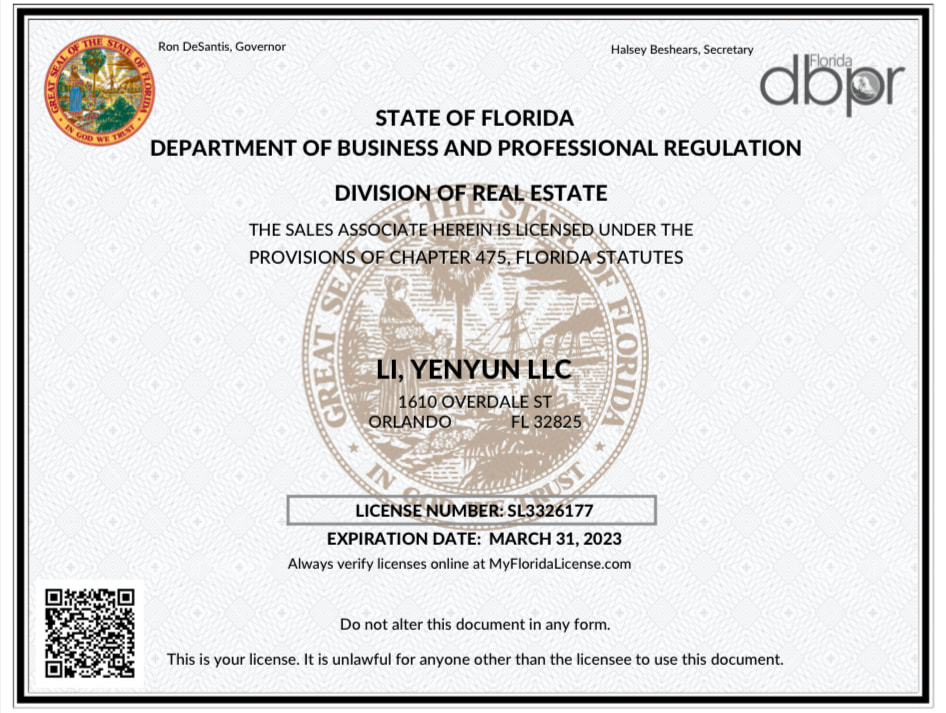
If you're thinking about becoming a real estate agent in Connecticut, you may be wondering how to get your license and what's involved. It's easy to obtain a Connecticut real-estate license.
Prelicensing takes 60 hours. Many courses are available online. These courses will cover legal issues and fair housing law, as well as the real estate industry.
After completing your program, you'll need pass the state licensing test. PSI has testing centers all over the country. The exam is broken into 2 parts. Part 1 covers general knowledge of real estate and part 2 covers state specific information.
To pass the test, you must score at least 70% in each section. You can retake the test multiple times to improve your chances of passing.

You'll learn all about the real-estate industry including legal issues and property law during the prelicensing program. This course will help you prepare for your Connecticut licensing exam.
After you have successfully completed your prelicensing training, you will be able to apply for your Connecticut real-estate license through a sponsoring broker and pay the $285 application fees. A copy of your state licensing exam results will also be required.
You must be at the least 18 years old and have at least one year of experience in the field to become a licensed Connecticut real estate agent. A 60-hour course on real estate principles and practices must also be taken.
You will find many different real estate classes in Connecticut. Some of these are even available online. These providers will assist you in fulfilling the requirements for your CT license and may even be able to help you upgrade from a broker's licence.
CE Shop is a popular option for self-guided realty classes. It offers many online courses at a reasonable price. You can learn at your own pace using their learning tools like flashcards or a quizzing system.

NREI offers livestreamed real-estate license CT courses on a variety schedules. You can complete the course in five, seven or 10 weeks and receive an official certificate at the end.
Colibri Real Estate, another excellent choice for realty prep, is Colibri Real Estate. They offer a variety of practice exams, digital flashcards and a Pass or Don't Pay guarantee so you'll have confidence on your exam.
Apart from the practice exams, they offer a Pass-or-Don't Pay guarantee for your licensure exam. This will ensure that you are confident and successful. They also offer many resources for students such as real estate books and podcasts.
It's a good idea to apply for your Connecticut realty license immediately if you plan on starting a career in real estate. There are many opportunities in this growing industry and a great income potential for those who work hard.
FAQ
What is the average time it takes to sell my house?
It all depends upon many factors. These include the condition of the home, whether there are any similar homes on the market, the general demand for homes in the area, and the conditions of the local housing markets. It can take from 7 days up to 90 days depending on these variables.
What are the three most important factors when buying a house?
When buying any type or home, the three most important factors are price, location, and size. The location refers to the place you would like to live. The price refers to the amount you are willing to pay for the property. Size refers the area you need.
Is it possible for a house to be sold quickly?
It may be possible to quickly sell your house if you are moving out of your current home in the next few months. There are some things to remember before you do this. First, you must find a buyer and make a contract. You must prepare your home for sale. Third, you need to advertise your property. Finally, you should accept any offers made to your property.
Can I buy a house in my own money?
Yes! Yes. These programs include government-backed loans (FHA), VA loans, USDA loans, and conventional mortgages. You can find more information on our website.
What should I do if I want to use a mortgage broker
A mortgage broker is a good choice if you're looking for a low rate. A broker works with multiple lenders to negotiate your behalf. Some brokers do take a commission from lenders. You should check out all the fees associated with a particular broker before signing up.
Statistics
- It's possible to get approved for an FHA loan with a credit score as low as 580 and a down payment of 3.5% or a credit score as low as 500 and a 10% down payment.5 Specialty mortgage loans are loans that don't fit into the conventional or FHA loan categories. (investopedia.com)
- This seems to be a more popular trend as the U.S. Census Bureau reports the homeownership rate was around 65% last year. (fortunebuilders.com)
- Based on your credit scores and other financial details, your lender offers you a 3.5% interest rate on loan. (investopedia.com)
- 10 years ago, homeownership was nearly 70%. (fortunebuilders.com)
- This means that all of your housing-related expenses each month do not exceed 43% of your monthly income. (fortunebuilders.com)
External Links
How To
How to Manage a Property Rental
You can rent out your home to make extra cash, but you need to be careful. These tips will help you manage your rental property and show you the things to consider before renting your home.
Here are some things you should know if you're thinking of renting your house.
-
What are the first things I should consider? Before you decide if you want to rent out your house, take a look at your finances. You may not be financially able to rent out your house to someone else if you have credit card debts or mortgage payments. You should also check your budget - if you don't have enough money to cover your monthly expenses (rent, utilities, insurance, etc. It may not be worth it.
-
How much is it to rent my home? There are many factors that go into the calculation of how much you can charge to let your home. These factors include location, size, condition, features, season, and so forth. You should remember that prices are subject to change depending on where they live. Therefore, you won't get the same rate for every place. Rightmove shows that the median market price for renting one-bedroom flats in London is approximately PS1,400 per months. This would translate into a total of PS2,800 per calendar year if you rented your entire home. That's not bad, but if you only wanted to let part of your home, you could probably earn significantly less.
-
Is this worth it? It's always risky to try something new. But if it gives you extra income, why not? You need to be clear about what you're signing before you do anything. Not only will you be spending more time away than your family, but you will also have to maintain the property, pay for repairs and keep it clean. Make sure you've thought through these issues carefully before signing up!
-
What are the benefits? You now know the costs of renting out your house and feel confident in its value. Now, think about the benefits. There are many reasons to rent your home. You can use it to pay off debt, buy a holiday, save for a rainy-day, or simply to have a break. You will likely find it more enjoyable than working every day. Renting could be a full-time career if you plan properly.
-
How do you find tenants? After you have made the decision to rent your property out, you need to market it properly. You can start by listing your property online on websites such as Rightmove and Zoopla. Once potential tenants reach out to you, schedule an interview. This will help you assess their suitability and ensure they're financially stable enough to move into your home.
-
What are the best ways to ensure that I am protected? If you fear that your home will be left empty, you need to ensure your home is protected against theft, damage, or fire. Your landlord will require you to insure your house. You can also do this directly with an insurance company. Your landlord will usually require you to add them as additional insured, which means they'll cover damages caused to your property when you're present. This does not apply if you are living overseas or if your landlord hasn't been registered with UK insurers. In such cases, you will need to register for an international insurance company.
-
You might feel like you can't afford to spend all day looking for tenants, especially if you work outside the home. It's important to advertise your property with the best possible attitude. It is important to create a professional website and place ads online. Additionally, you'll need to fill out an application and provide references. While some prefer to do all the work themselves, others hire professionals who can handle most of it. It doesn't matter what you do, you will need to be ready for questions during interviews.
-
What do I do when I find my tenant. If you have a current lease in place you'll need inform your tenant about changes, such moving dates. You can negotiate details such as the deposit and length of stay. You should remember that although you may be paid after the tenancy ends, you still need money for utilities.
-
How do you collect rent? When it comes to collecting the rent, you will need to confirm that the tenant has made their payments. If they haven't, remind them. Before you send them a final invoice, you can deduct any outstanding rent payments. You can always call the police to help you locate your tenant if you have difficulty getting in touch with them. If there is a breach of contract they won't usually evict the tenant, but they can issue an arrest warrant.
-
What are the best ways to avoid problems? You can rent your home out for a good income, but you need to ensure that you are safe. You should install smoke alarms and carbon Monoxide detectors. Security cameras are also a good idea. You should also check that your neighbors' permissions allow you to leave your property unlocked at night and that you have adequate insurance. Finally, you should never let strangers into your house, even if they say they're moving in next door.